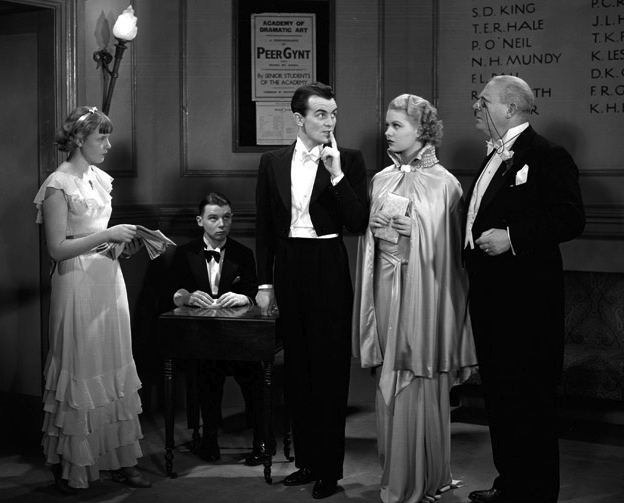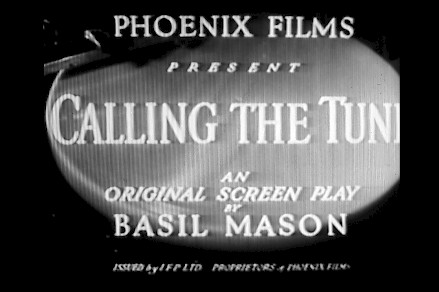Henry Wood on screen

'Henry Wood on Screen: History and Fiction in Calling the Tune (Ealing, 1936)'. Invited lecture, with film clips, Royal Academy of Music, London, 7 March 2003
Calling the Tune was a modest little picture in 1936 - a quota quickie or 'B' movie. It never pretended to be anything more and was soon forgotten, even by Ealing studios. But as both entertainment and documentary pastiche, it invites serious thought by new viewers.
The film's melodramtic plot of love and rivalry is set against the background of the London recording industry, telescoping some 40 years into 80 minutes. From cylinder to shellac disc, then electrical recording to nascent sound and video, the struggles of two companies and two families are played out. Good triumphs over dirty tricks but not before viewers are entertained by a succession of stage, concert and music hall stars, appearing in cameo to cut their discs at meaningful plot moments. Performers run the gamut from George Robey and Charles Penrose ('The Laughing Policeman') to Cedric Hardwicke, a disembodied Nellie Melba, and Henry Wood - the last appearing in a space resembling Abbey Road Studios with his (defunct) 'Queen's Hall Orchestra'.
This lecture placed the film squarely in a context of concert and music hall conventions of the late 19th century, showing how these overlapped with the gramophone era and early film - all in a ruthlessly competitive market. Through its sequence of ever more integrated and sophisticated musical numbers, I explored the relevance of Wood's personal appearance at the dramatic climax. Not only was he music adviser to the film, but in 1935 he'd just signed a contract with the new Decca record company (symbolized by Harbord in the film), using the old QHO name. Above all Wood's public image needed leveraging to undergird his association with the Proms, run by the BBC: in the mid-1930s he feared, rightly, that the Corporation were beginning to edge him out, away from his popular audience.
This fictional scenario drawing on history now makes for a more fascinating and prescient film than its makers could have known.
'I had heard of the un-put-downable thriller, but you have invented the un-put-downable lecture - tremendous'
Lewis Foreman, author and music historian

The Royal Academy of Music holds a two-part videotape of the lecture: catalogue accession nos. 2004.1044 and 2004.1046.
 Langley
Langley